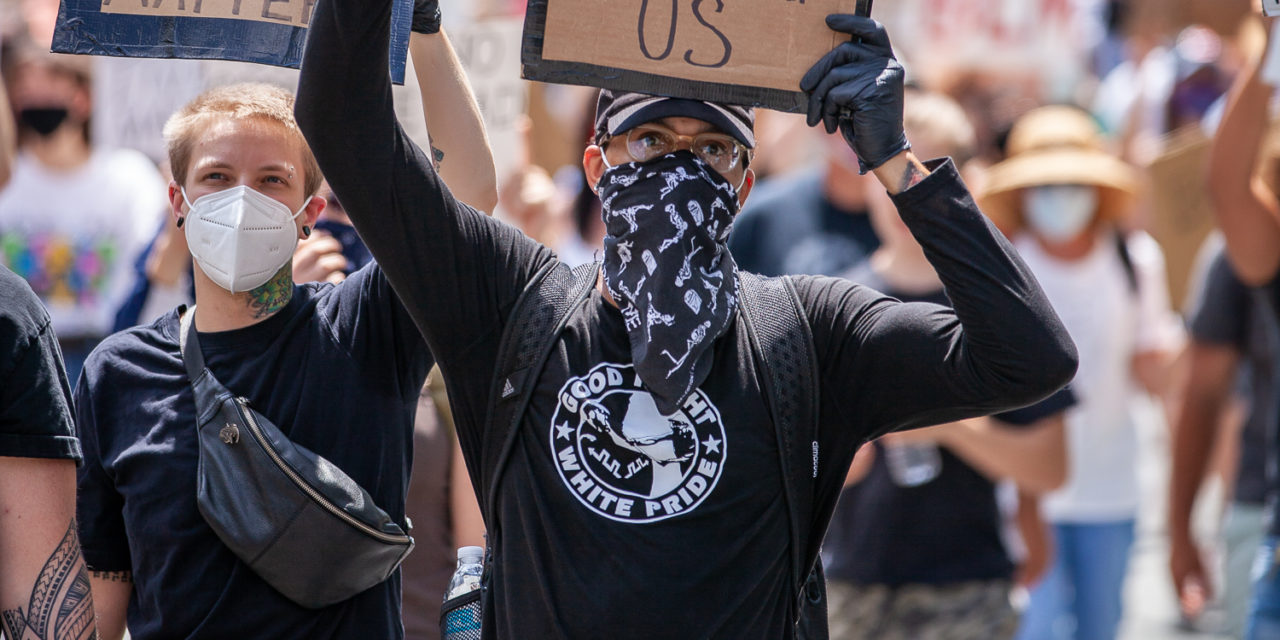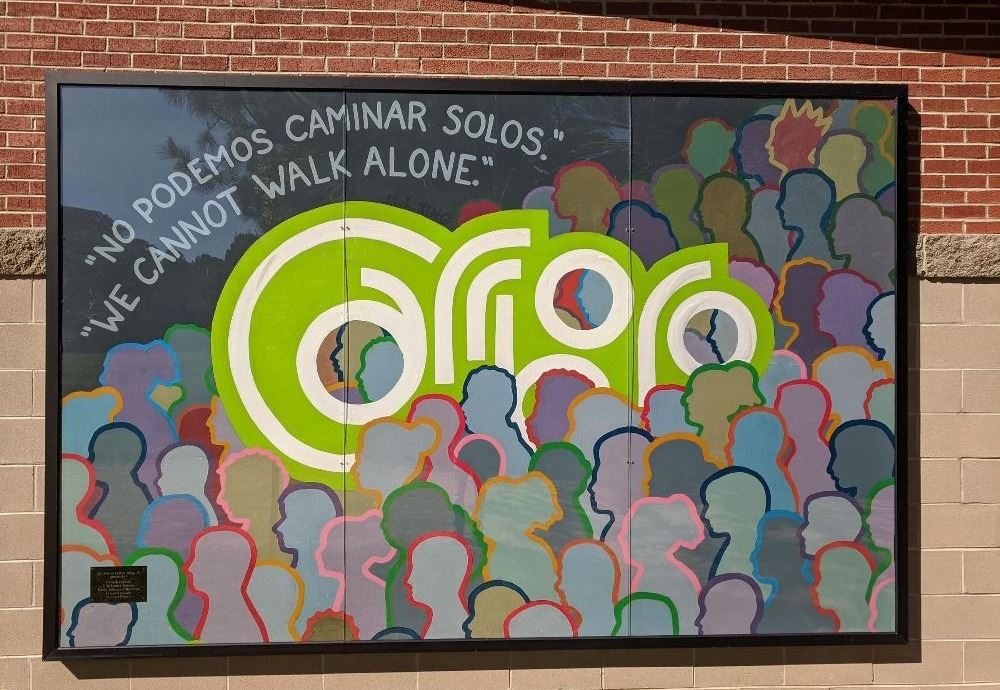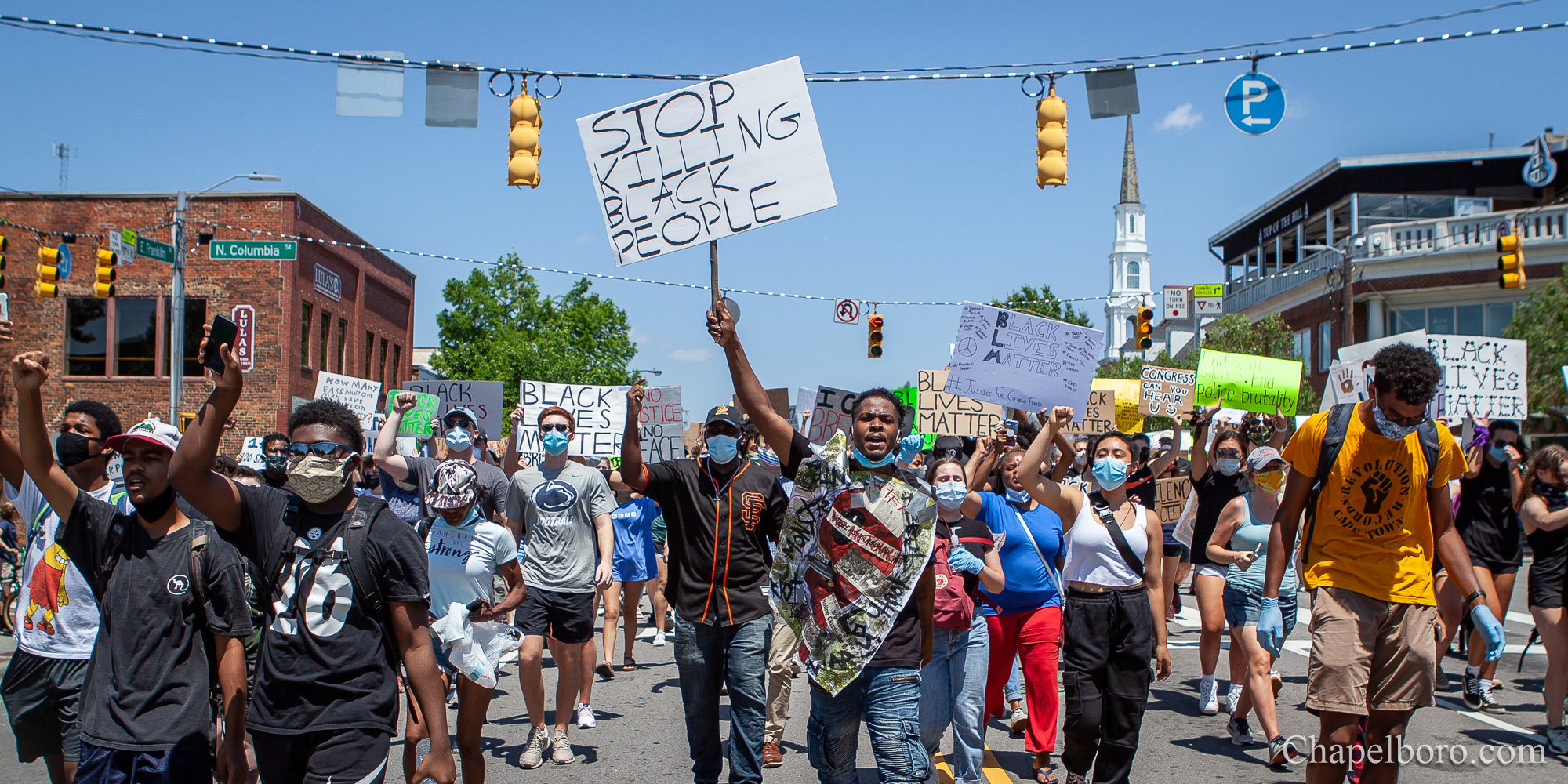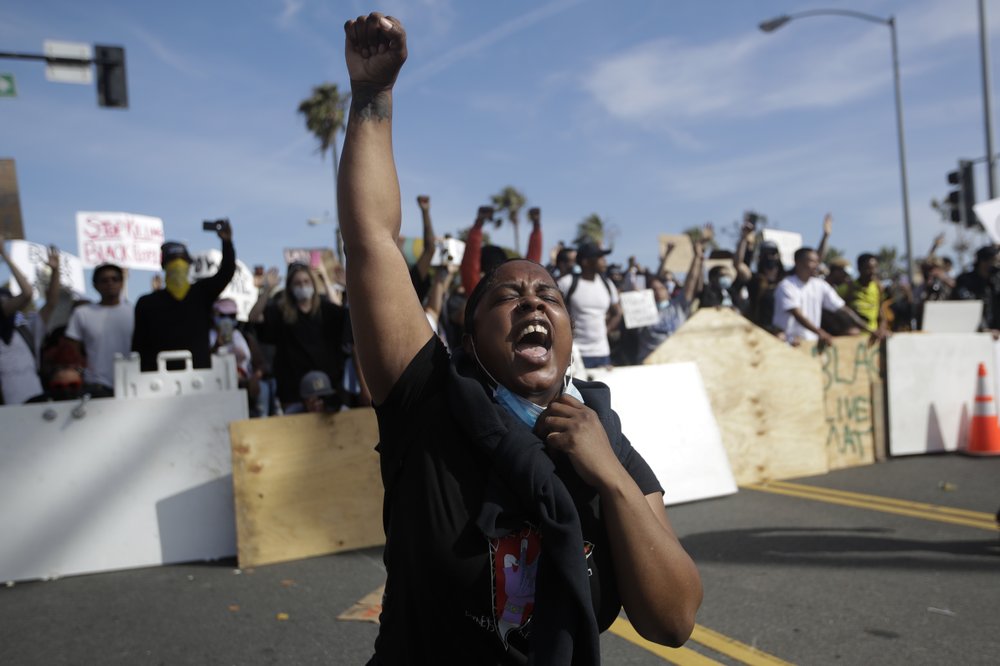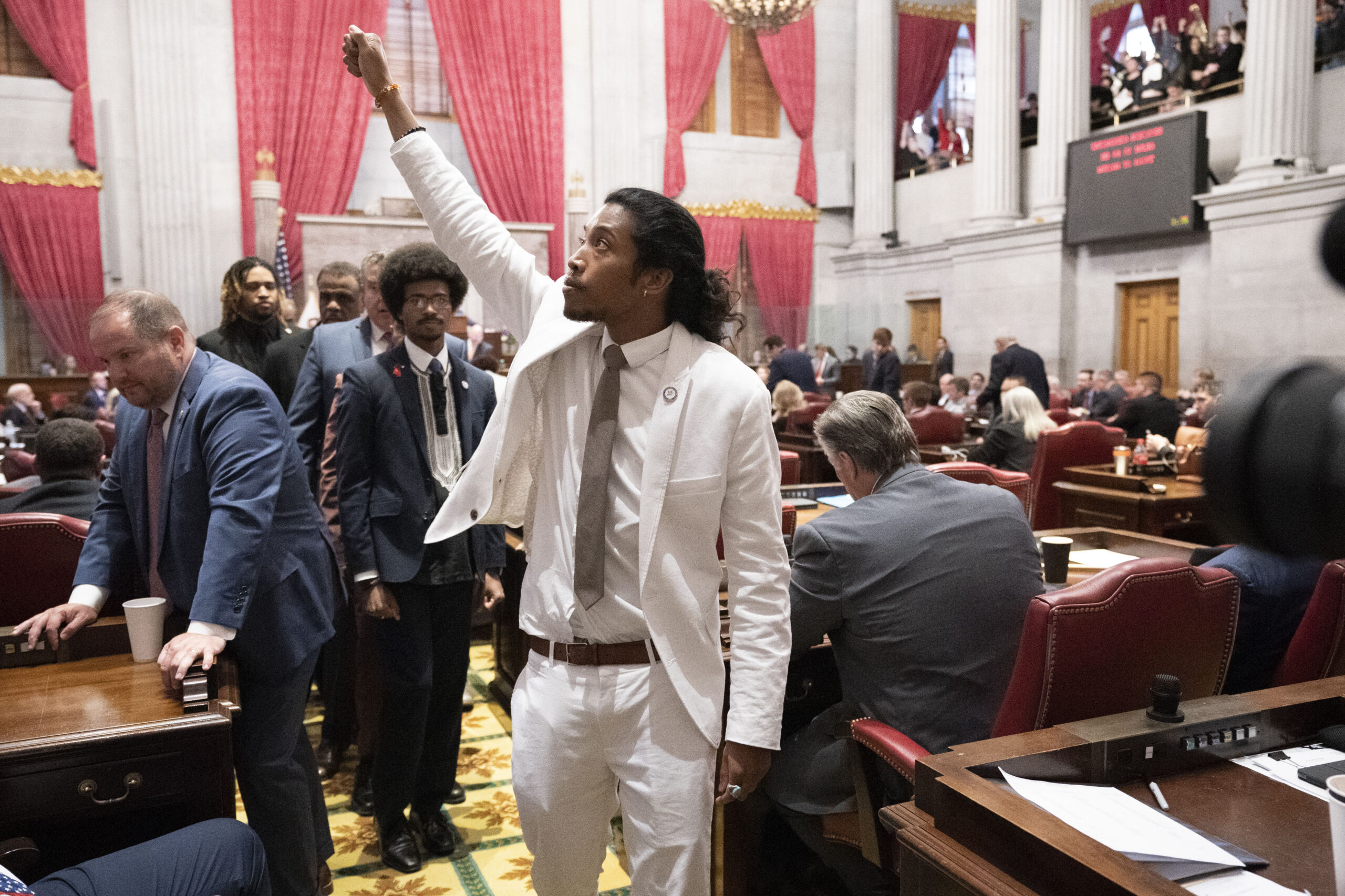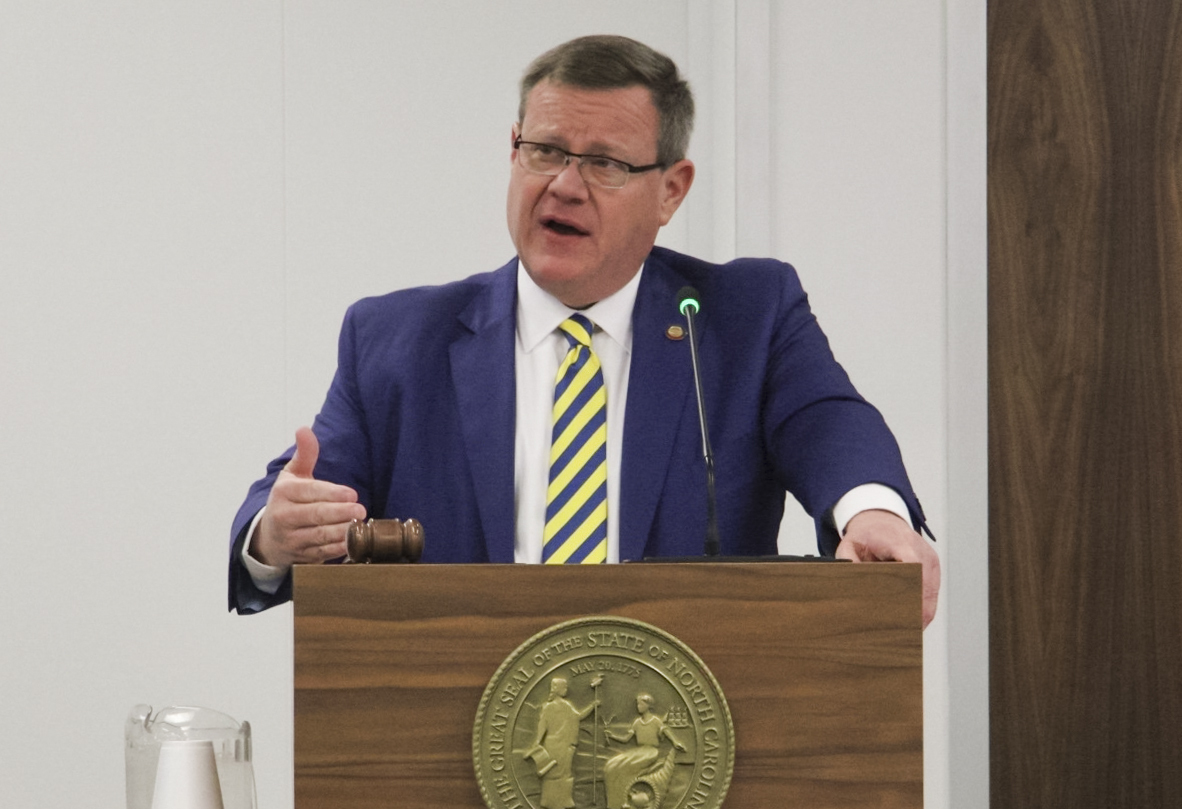One UNC professor and historian said recent attacks on protesters, the Black Lives Matter movement, and the media are direct attacks on the first amendment.
As we reflect on current protests stemming from the death of George Floyd and the need for police reform, many Americans are now educating themselves on topics they may not have known much about before, such as police brutality, systematic racism and mass incarceration.
Dr. William Sturkey is an assistant professor at UNC and a historian with expertise in the history of race in the American South. He teaches courses on the Jim Crow Era, the civil rights movement and the 1960s.
Sturkey said the two biggest milestones when talking about race in the American South are the end of slavery and Reconstruction to civil rights movement, which ended in the late 1960s.
He said many people believe that what we are experiencing right now may be the third big milestone and dramatic shift. According to Sturkey, for current events to lead to a third reconstruction, we would need to see actual structural change – changing more than just policing in local jurisdictions.
“So what we’re talking about with Reconstruction, and then also the civil rights movement, is that we saw dramatic structural changes,” Sturkey said. “One was the end of slavery in this country and the second one was the end of Jim Crow in this country. We don’t live in a country that guarantees an education to its citizens – we don’t live in a country that guarantees health care to its citizens – we live in the nation that has the highest rate of incarceration in the world. So, it [structural change] would be geared around changing large scale issues like that through new legislation.”
These changes, historically speaking, come from protesting. Sturkey said black Americans have been protesting police brutality since the 1910s and 1920s and the ability of people to assemble, speak out and to protest is the foundation of our democracy. Part of that foundation can include everything from renaming campus buildings or taking down confederate monuments to the larger shift we are experiencing now.
When practicing your first amendment right, Sturkey said it will be important to follow up and do your part to change legislation.
“Presumably that’s followed up by them using their vote in order to elect leaders that can deliver on their expectations,” Sturkey said. “From the revolution to the civil rights movement to women’s and gay rights movements, it’s the foundation of our country – it’s the most important thing. I think one of the things that’s so important to people now is a lot of people can see how there have been attacks from the top down in our country on that very first amendment – the principle of our democracy.”
Sturkey said these attacks on protesters, the Black Lives Matter movement, or even the media are direct attacks on the first amendment, which in turn continues to spur the movement forward in the age of social media.
He said this current movement is the accumulation of many previous attacks on human rights – providing a solid foundation for people to stand on when protesting.
“This goes all the way back to Trayvon Martin – I think was the very first one of these that drew people to this issue,” Sturkey said. “It’s still popping up in these waves every now and then, but underneath these waves we have a steady stream of different interpretations led by a lot of people that have studied mass incarceration and police violence. So the body of scholarship is just exploding over this issue over the past eight years.”
Because of the mass amount of documentaries, books and other newly mainstream literature, Sturkey said the general public has so many tools they can reference when issues like these arise. Many of these tools weren’t easily accessible before – like how the rise of social media can be used to hold those in power accountable.
With all these new resources, and when looking at our nation from a historical standpoint, Sturkey said our nation is due for another change.
“From the time that we started the republic to the time that we had the Civil War was about 70 to 80 years,” Sturkey said. “Then there were about 70 to 80 years between the Civil War and Reconstruction and the civil rights movement and now we’re about 70 to 80 years past the civil rights movement. So if you can see these big changes in waves, it’s probably about time for another one and it usually does take a long time unfortunately – even though some of these rights are guaranteed to people in the constitution.”
Chapelboro.com does not charge subscription fees. You can support local journalism and our mission to serve the community. Contribute today – every single dollar matters.

